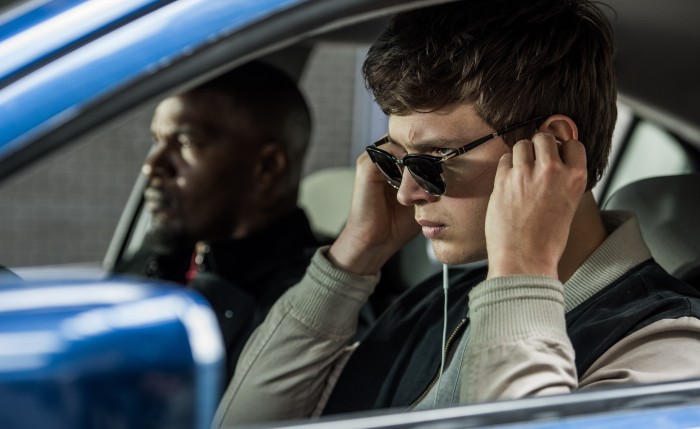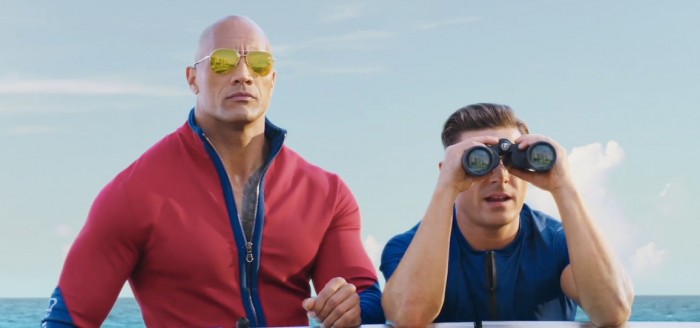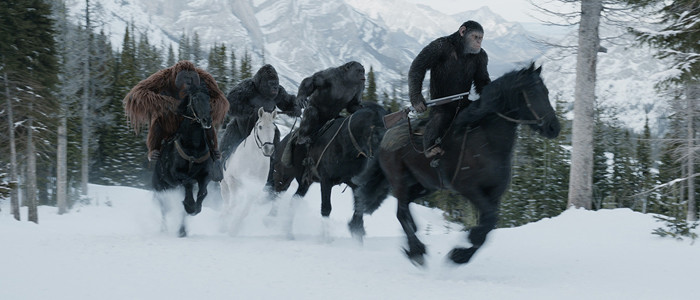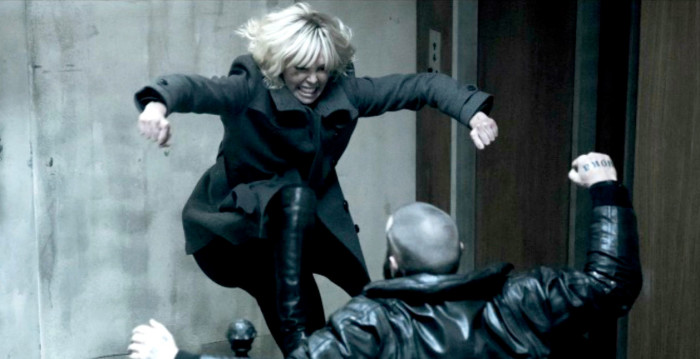Why The 2017 Summer Movie Season Is The Best One We've Seen In Decades
At the beginning of the season, 2017's summer movie prospects looked bleak. Though Guardians of the Galaxy Vol. 2 kicked things off in May with a strong start, it was followed by a string of generic tentpole movies — more symptoms of the bloated franchise-crazy studio system.
It seems like a distant memory now, but we were once inundated with another Transformers movie, another Pirates of the Caribbean, an unfunny Baywatch reboot, and Guy Ritchie's misguided King Arthur: Legend of the Sword (Just give us The Man from U.N.C.L.E. 2, Guy!). But then came Wonder Woman, and the tides shifted.
It took a few more clunkers for the rest of the movie season to catch up with Wonder Woman, but suddenly the theaters were filled with diverse, acclaimed films on both sides of the high and low-budget spectrum. How is this different than recent summer movie seasons, which had their share of one or two acclaimed movies? That's just it — every summer for the past decade has had maybe one or two standout films that defined that summer, while the accompanying films received tepid reviews or audience response. Mad Max: Fury Road may have stolen the show in 2015, but I fail to remember more than two movies that summer half as good. 2017 is the first summer season we've had in years where there have been more than four or five quality movies in the theater at once — and that both critics and audiences flocked to.
The moment I realized this may be the best summer for movies we've had in decades was when I was headed to see Dunkirk at my local mall's theater. On the posters gracing the wall next to Dunkirk were Wonder Woman (still holding strong), Baby Driver, War for the Planet of the Apes, Spider-Man: Homecoming, and The Big Sick, and sitting across the way from those posters was a giant cardboard cut-out of a bobbed and armed Charlize Theron in Atomic Blonde. Behind that cut-out was a display for Kathryn Bigelow's Detroit.
Two weeks earlier, I was at the smaller "arthouse" theater which carried both indie and mainstream films. Walking out of my screening of The Beguiled, I saw a packed audience of The Big Sick milling out next to a nearly empty showing of the Transformers: The Last Knight. I nearly wept with joy.
But Hoai-Tran! Your personal experiences aren't an indication of a shifting cinematic landscape! Stop projecting your wishes for variety in films onto Hollywood, Hoai-Tran! Well, I come with proof, my friends. If not proof that this has been the best summer movie season in decades, then at least proof that movies are just really good right now.
The Mid-Budget Movie Isn’t Dead
When the Marvel Studios launched its cinematic universe in 2008 with Iron Man, it probably had no idea how much it would transform the movie landscape. Barely 10 years later, we're facing an overload of cinematic universes and franchises, and a dearth of basically any other kind of movie. Namely, the mid-budget movie.
What is the mid-budget movie and why do we care about it? A mid-budget movie is loosely defined as costing between $5 million to $60 million to make, and can encompass anything from auteur-driven films like Do The Right Thing, to high-concept thrillers, or romantic comedies. And they're disappearing.
Flavorwire wrote an eye-opening eulogy for the adult mid-budget movie in 2014, arguing that mid-budget auteurs like Steven Soderbergh, David Lynch, and Francis Ford Coppola were being driven out of jobs because of the studio's fixation on reliably profitable blockbusters. With fewer mid-budget movies in the work, the variety in movies suddenly started to fall in favor of more sequels, blockbusters, and franchises. The article coined the term "multiplex monotony" to describe the state of modern movie offerings. It seems melodramatic at first, but the writer's comparison between the 1997 movie slate replete with thrillers, romances, indie comedies, and dramas, and a 2010 box office that boasted five blockbusters, a comedy, and a horror sequel, speaks volumes.
But the mid-budget movie, in the wise words of Monty Python, is "not dead yet!"
Baby Driver and Girls Trip, both mid-budget movies made for less than $35 million and boasting rave reviews, beat The Mummy at the box office, the Tom Cruise vehicle intended to launch Universal's embattled Dark Universe. Now Soderbergh, returned from retirement and the prestige TV realm to bring us the hillbilly heist thriller Logan Lucky this month. If those aren't perfect examples of the mid-budget movie returning from the dead to destroy the thing that supposedly slayed them, I don't know what is.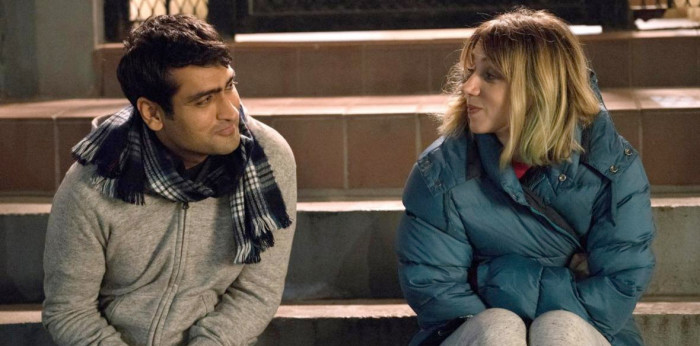
The Festival Favorites Keep Going
The Big Sick, Baby Driver, and Atomic Blonde were critical hits at their respective film festivals that somehow maintained that momentum to mainstream success. Even Okja, which premiered to some controversy at the Cannes Film Festival, has found its legs on the Netflix streaming platform where it debuted.
My weepy anecdote about The Big Sick drawing in huge crowds aside, these three films were perhaps the biggest indicators of a shift in interest away from franchise films and sequels, toward original lower budget films. All three were water cooler fodder: The Big Sick spawned many a social media conversation about interracial relationships and Asian male leads in film, Baby Driver was lauded for its stylish soundtrack and homage to the heist genre, and Atomic Blonde was just plain cool. All three, were passion projects for their makers (Charlize Theron guided Atomic Blonde as a producer for years), pulling in big numbers in spite of a crowded theater full of superheroes and sequels.
The Beguiled — despite the conversations it sparked about race — cemented Sophia Coppola's standing as one of cinema's most compelling directors. A Ghost Story and It Comes At Night gave haunting and distressing musings on humanity. I missed plenty of others, like Landline and Brigsby Bear, because there were just too many good ones to see.
Perhaps it's because audiences are expecting more from their entertainment. With the wealth of information and access to great pop culture at the tip of their fingers thanks to streaming platforms, people may just want a genuinely good movie when they spend $15 or more at the movie theater.
The Bad Blockbusters (Mostly) Bombed
For every Pirates of the Caribbean: Dead Man Tell No Tales raking in $781.5 worldwide, there's the financial failure of virtually every other critically maligned big budget sequel or franchise entry.
Sure bets like the Dwayne Johnson-Zac Efron comedy reboot of Baywatch and Ritchie's aforementioned rock 'n' roll take on King Arthur "dragged down" box office profits for studios, according to Variety. Analyst Jeff Bock told the outlet that the poor box office performance could be blamed on one factor, "and that's the over-reliance on sequels catching up to Hollywood... Every one save for Guardians of the Galaxy Vol. 2 disappointed."
Franchise fatigue is a term that gets thrown around a lot, but we may be seeing its true beginnings with this summer season.
However, even many of box office failures are an indicator of a singular summer movie season, David Ehrlich at Indiewire points out. Movies that were met with audience indifference and mixed critical reaction like Valerian and the City of a Thousand Planets and even The Book of Henry, were at least trying to do something "truly special," he writes. They may have been messes, but they were spectacularly hot messes. Even if I haven't seen Colin Trevorrow's The Book of Henry, I will always remember where I was when the review embargo for it broke.
Genre Films Have Never Been Better
Superhero movies by nature are hit or miss, but in the Year of Our Lord 2017, by gosh they delivered. (Shout out to Logan for starting us off right way back in March). Wonder Woman is the highest grossing movie of the summer domestically, recently crossing the $400 million mark in U.S. grosses. Guardians of the Galaxy Vol. 2 and Spider-Man: Homecoming hold the next two top slots. All of them have over 80% rating on Rotten Tomatoes, with both Spider-Man and Wonder Woman in the 90% range.
And the memorable releases aren't limited to superhero movies. Ridley Scott took his beloved sci-fi series a step further toward insanity with Alien: Convenant, a movie that divided critics and flopped at the box office despite/because of it being something truly singular and unique. War for the Planet of the Apes, the third entry in the rebooted sci-fi series, is easily one of the best blockbusters of the year, pushing the limits of genre filmmaking.
Last but not least, Dunkirk, one of the most successful blockbusters of the summer and one that represents the intersection of all my previous sections: a genre film with an original story helmed by an auteur director who broke out on the movie scene in mid-budget movies. Christopher Nolan is unfortunately still seen as the exception by Warner Bros. rather than the rule — their new directive to avoid working with auteurs except for box office giants like Nolan or Spielberg is counter to everything that made this summer great. But hopefully, the unlikely success of Dunkirk, which was initially predicted to have a weak opening and potentially lose to the Emoji Movie (it did not) may steer studios back to auteurs.
The Women Are the Strong Ones, Truly
Where movies lead by bankable male stars failed, female-led movies soared.
The power of Wonder Woman is unquestionable, but let's not discount the critically praised Girls Trip, this year's crass female-led comedy that always ends up surprising studio executives with its success.
The star power of female leads like Gal Gadot in Wonder Woman, Charlize Theron in Atomic Blonde, and breakout star Tiffany Hadish in Girls Trip is a force to be reckoned with.
Gadot's inspiring turn in Wonder Woman certainly opened the door for more female-led superhero movies, with Marvel eyeing Wonder Woman as it prepares Brie Larson to take the mantle of Captain Marvel, and DC Films stuffing its slate with Gotham City Sirens and Batgirl.
Theron's vicious and brutal turn as an MI6 spy in Atomic Blonde has /Film's Vanessa Bogart making the case for a new kind of "chick flick," one that involves complex and capable women.
Can this summer season be the turning point for women in movies? It's hard to say, though it's no question that women were part of the turning point in this year's truly great summer movie season.

